
by David Levinson
Persecution and division
It’s rarely discussed, but a major condition of the decolonization of Africa has been that the newly independent nations are expected to retain their old colonial boundaries. The stated reason is to prevent squabbling and even armed conflict over redrawing those boundaries, such as we’ve seen between Pakistan and India. It sounds good on paper; unfortunately, paper is where those boundaries were drawn, often with little regard for people living there and leaving major tribes and ethnic groups split by lines on a map. Add in the tendency of colonial administrations to favor one tribe over others and you have the basis for a lot of unrest.

Nigeria is proving to be a case in point. Economic problems, tensions between the Muslim north and Christian south, government corruption, and an election widely seen as fraudulent all came to a head in an attempted military coup at the beginning of last year. Although the coup failed, the military was left in charge, and military governors were placed in the four states. An attempt to create a more centralized government led to a counter-coup and the near dissolution of Nigeria. Under Western pressure, the new head of the government, Colonel Yakubu Gowon, restored the federal system.
Then pogroms in the north against the Igbo (a largely Christian tribe from Eastern Nigeria) and other eastern groups left as many as 30,000 dead and over a million refugees fled to the east. The strain on the east led to negotiations between Colonel Gowon and Eastern military governor Colonel Chukwuemeka Odumegwu Ojukwu seemed promising, but have fallen apart. On May 27th, Gowon declared that Nigeria would be divided into 12 states (cutting the Igbo off from oil money). The same day Colonel Ojukwu declared the independence of Eastern Nigeria. As we go to press, it has been announced that the new country will be called the Republic of Biafra. Nigeria is unlikely to accept this assertion of independence.
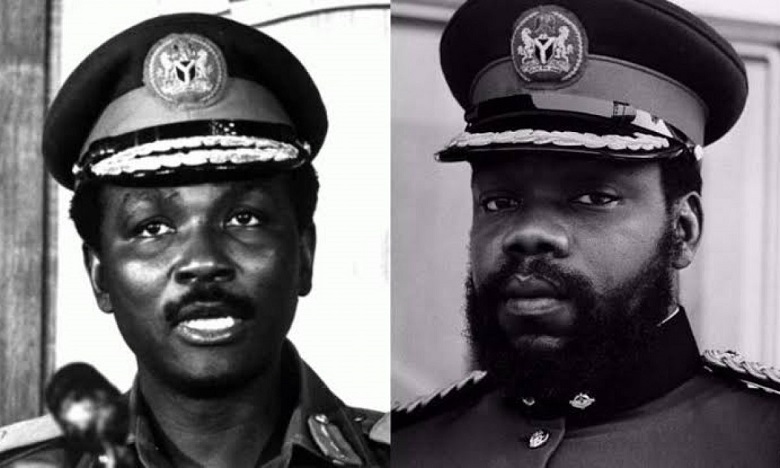 l.: Colonel Yakubu Gowon of Nigeria. r.: Colonel Odumegwu Ojukwu of Biafra.
l.: Colonel Yakubu Gowon of Nigeria. r.: Colonel Odumegwu Ojukwu of Biafra.
Mediocrity strikes again
Similarly unstable is this month’s IF, full of shaky partnerships, from famous authors and vikings to complicated family politics. Some expect betrayal, others will find themselves surprised.
 Joe Miller is the most fearsome warrior these vikings have ever seen. Art by Gaughan
Joe Miller is the most fearsome warrior these vikings have ever seen. Art by Gaughan
Continue reading [June 2, 1967] Uneasy Alliances (July 1967 IF)

![[June 2, 1967] Uneasy Alliances (July 1967 <i>IF</i>)](https://galacticjourney.org/wp-content/uploads/2022/05/IF-Cover-1967-07-672x372.jpg)
![[May 2, 1967] The Call of Duty (June 1967 <i>IF</i>)](https://galacticjourney.org/wp-content/uploads/2022/04/IF-Cover-1967-06-672x372.jpg)
 Muhammad Ali is escorted from the induction center in Houston, Texas.
Muhammad Ali is escorted from the induction center in Houston, Texas. 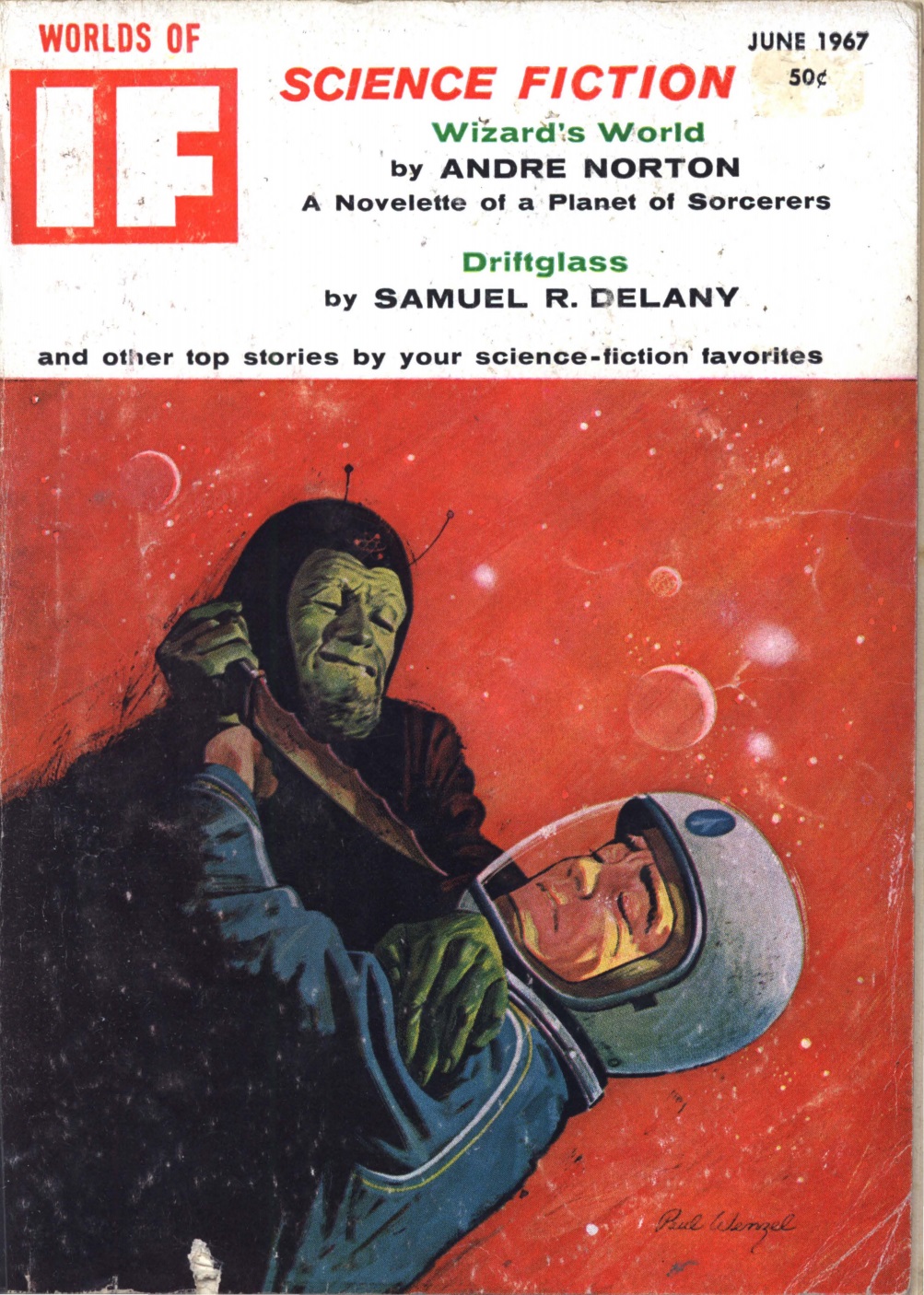 Uncle Martin and Tim (from My Favorite Martian) seem to have had a falling out. Actually, this is supposedly from Spaceman!
Uncle Martin and Tim (from My Favorite Martian) seem to have had a falling out. Actually, this is supposedly from Spaceman!![[April 4, 1967] Transitions (May 1967 <i>IF</i>)](https://galacticjourney.org/wp-content/uploads/2022/03/IF-Cover-1967-05-672x372.jpg)

 What are these robots up to? Art by Gaughan
What are these robots up to? Art by Gaughan![[March 4, 1967] Mediocrities (April 1967 <i>IF</i>)](https://galacticjourney.org/wp-content/uploads/2022/02/IF-Cover-1967-03-672x372.jpg)
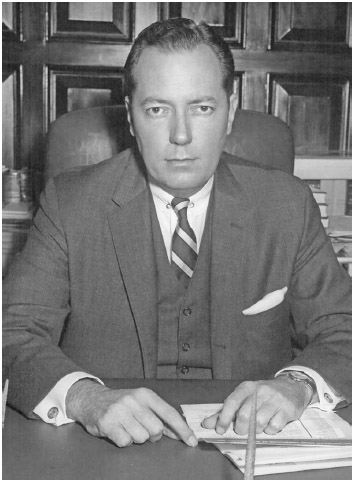
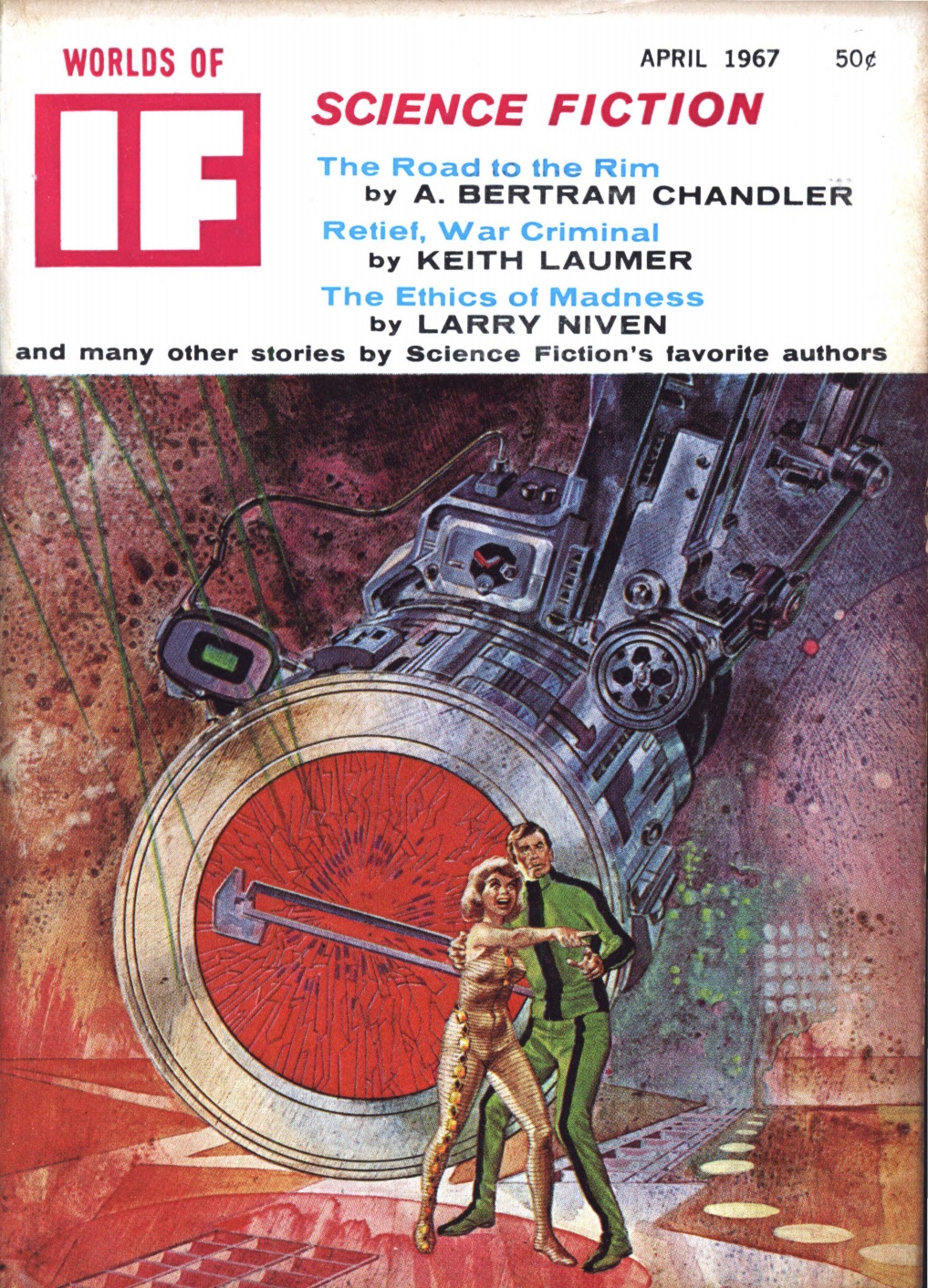
![[February 4, 1967] The Sweet (?) New Style (March 1967 <i>IF</i>)](https://galacticjourney.org/wp-content/uploads/2022/01/IF-Cover-1967-02-full-672x372.jpg)



![[January 2, 1967] Different perspectives (February 1967 <i>IF</i>)](https://galacticjourney.org/wp-content/uploads/2021/12/IF-Cover-1967-01-672x372.jpg)


![[December 2, 1966] Mixed Bags (January 1967 <i>IF</i>)](https://galacticjourney.org/wp-content/uploads/2021/11/IF-1966-12-Cover-665x372.jpg)

![[November 6, 1966] Starting Over (December 1966 <i>IF</i>)](https://galacticjourney.org/wp-content/uploads/2021/11/IF-1966-11-Cover-650x372.jpg)
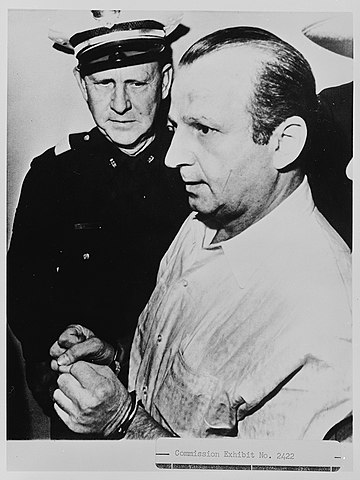
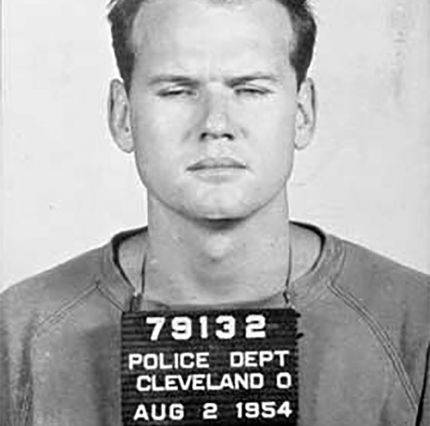
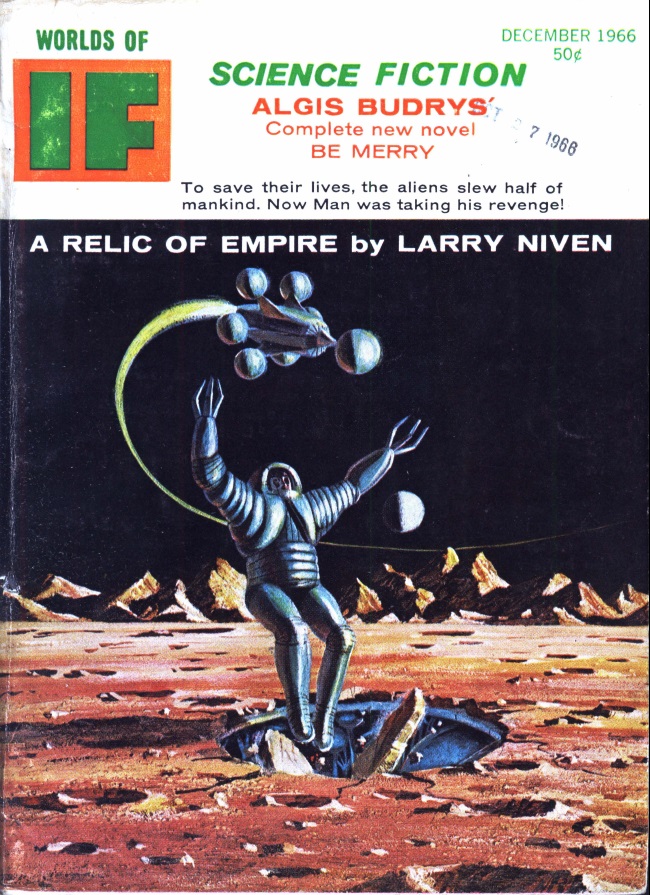
![[October 2, 1966] At Heart (November 1966 <i>IF</i>)](https://galacticjourney.org/wp-content/uploads/2021/09/IF-1966-10-Cover-646x372.jpg)
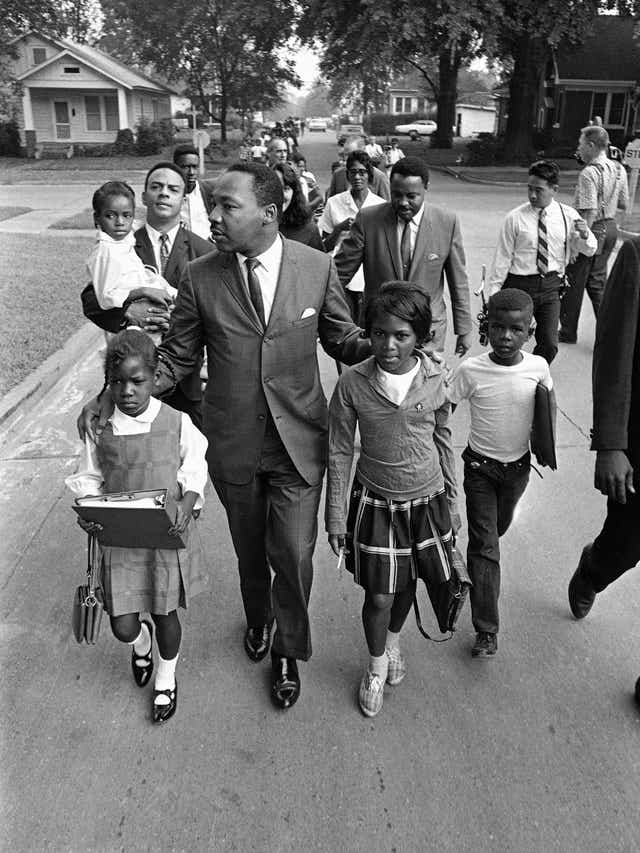

![[September 2, 1966] On the Edge (October 1966 <i>IF</i>)](https://galacticjourney.org/wp-content/uploads/2021/08/IF-1966-10-Cover-662x372.jpg)


